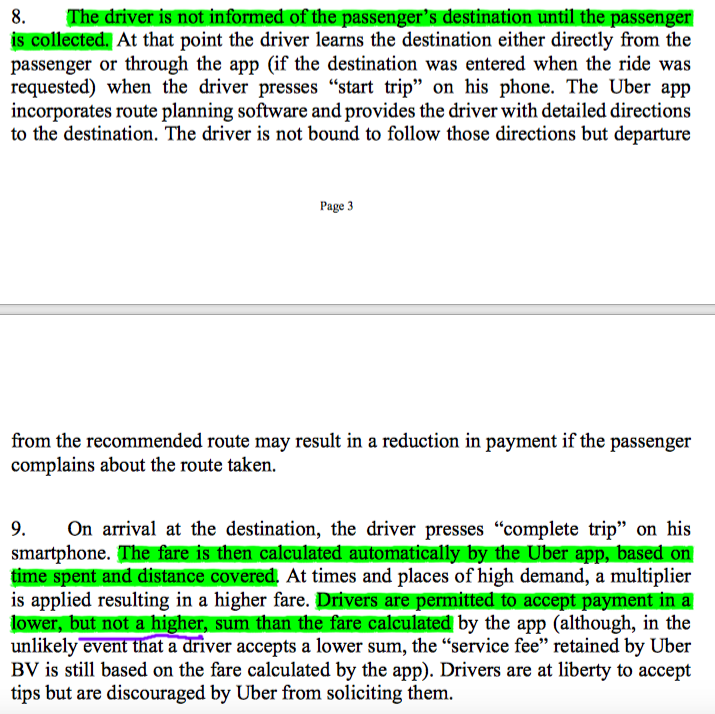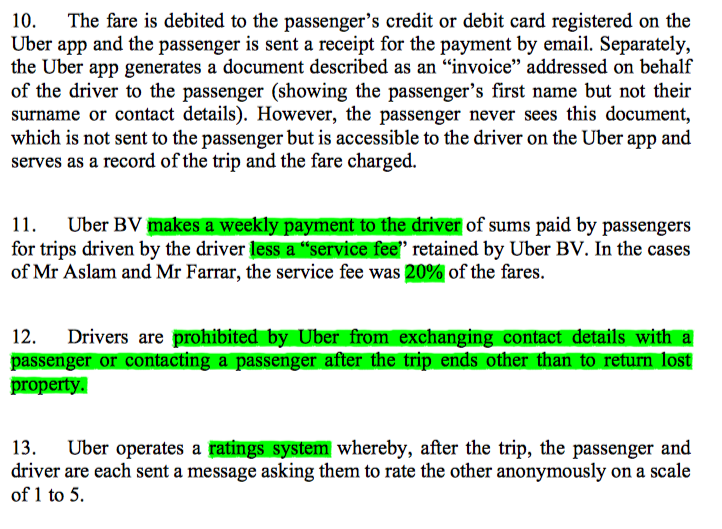
1/ As you'll know, the nub of Asfa v Brierly is whether female retail workers should be paid the same as male distribution centre workers because they do work of equal value & there's not a material factor justifying the difference in terms relating to pay. #ukemplaw
2/ This part of the case was concerned simply with the question of whether retail store workers could legitimately rely on distribution centre workers at all as comparators. It's a question contingent on interpreting EqA s.79(4) (particularly subpara (c)): 

3/ It was Asda's submission that common terms were not applied & hence the distribution workers were not comparators under s.79(2), thereby scuppering the 35,000 claimants' equal pay claims: 

4/ Whilst the Supreme Court goes into detailed explanation, the simple answer to the legal question is set out in clear and simple terms in both para 5 & 19 of the judgment, explaining what the North hypothetical is & how it applies. I won't try to improve on it: 



5/ There had been a suggestion by Asda that a change in wording between s.1(6) of the Equal Pay Act & s.79(4) EqA rendered the North hypothetical a relic of the past & not to be relied upon now. The Supreme Court was clear that Asda rightly conceded that point. 



6/ The SC reviewed briefly the 3 cases which led to its inevitable conclusion: Leverton v Clwyd CC, British Coal v Smith & Dumfries & Galloway v North. I need not go into that part of the judgment - it's at para 20-28 if you're interested in reading it.
7/ After that review, Lady Arden noted that Asda is the 1st case where the T&Cs at the different establishments weren't fixed by collective bargaining. She held that made no difference & that it didn't impact on the application of the North hypothetical. 

8/ In fact, in Asda's case the distribution workers' T&Cs are a result of collective bargaining though not the retail workers. Whilst Asda said these different employment regimes meant the claim must fail, the SC disagreed reading the common terms threshold as a low one. 



9/ Looking at whether common terms applied, the ET had made a line-by-line comparison. The CA held that not the right approach & that the North hypothetical was the dispositive approach - on what terms would distribution workers be employed if at the same site as retail workers?
10/ The SC agreed with the CA on the inappropriateness of a line-by-line comparison. That agreement explained rejection of Asda's argument re findings of fact that the ET ignored a number of terms which weren't common between the establishments. 





11/ Thankfully the ET had also carried out the North hypothetical exercise & had found it fell in the claimants' favour. 

12/ That exercise led the ET to consider Asda witness evidence that if (in the hypothetical situation) distribution workers carried out distribution work in store they'd retain their terms but if carrying out retail work then retail terms would apply.
13/ It was Asda's case before the SC that the claimants had to prove under the North hypothetical that T&Cs wouldn't change on transfer & that they had failed to do so (the ET had found it irrelevant to the application of the hypothetical test). 

14/ It was the ET's finding that it was inherently unlikely that depot workers would be willing to give up their terms if hypothetically relocated into stores. That was a finding of fact to which the ET was entitled to come. 



15/ Moreover, the SC rejected the submission that the North hypothetical has to be asked on the basis the comparator will perform his role physically within the claimant's workplace. There needs be no more than an assumption even if contrary to fact. 





16/ The SC ended by strongly discouraging lengthy fact-findings on the s.79(4)(c) question & discouraging employers from using this hurdle as a way to prolong equal pay litigation contrary to the legislation's protective purpose. The SC also discouraged appeals on this point. 



17/ That will be music to the ears of those representing equal value claimants, used to unconscionable delays between presenting the claim & final determination, with many a case of a claimant dying before a result (as the memorial bench in George Square. Glasgow testifies) 

18/ If you've reached this point in the thread, I guess you deserve a link to the judgment. Here it is:
supremecourt.uk/cases/docs/uks…
#ukemplaw
supremecourt.uk/cases/docs/uks…
#ukemplaw
• • •
Missing some Tweet in this thread? You can try to
force a refresh












